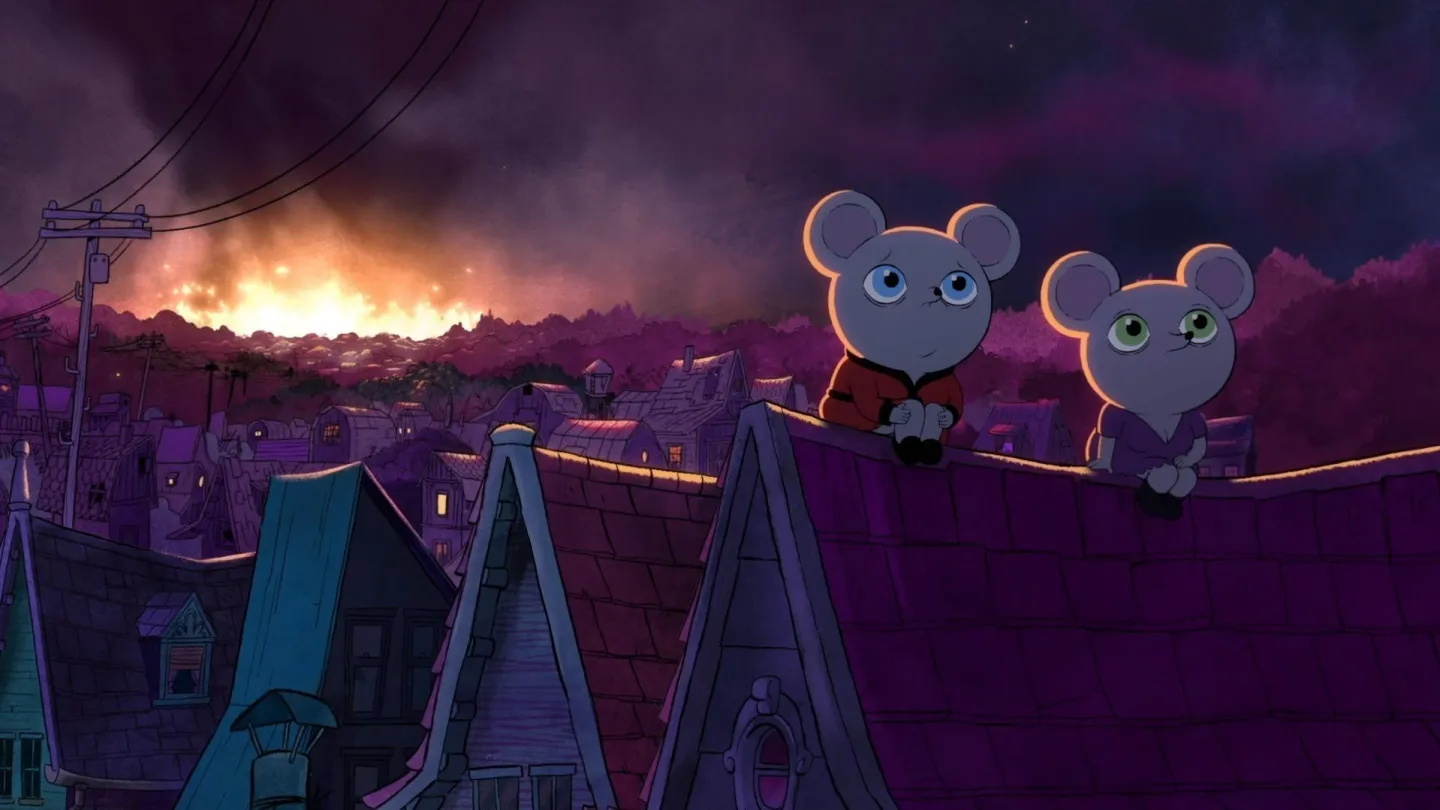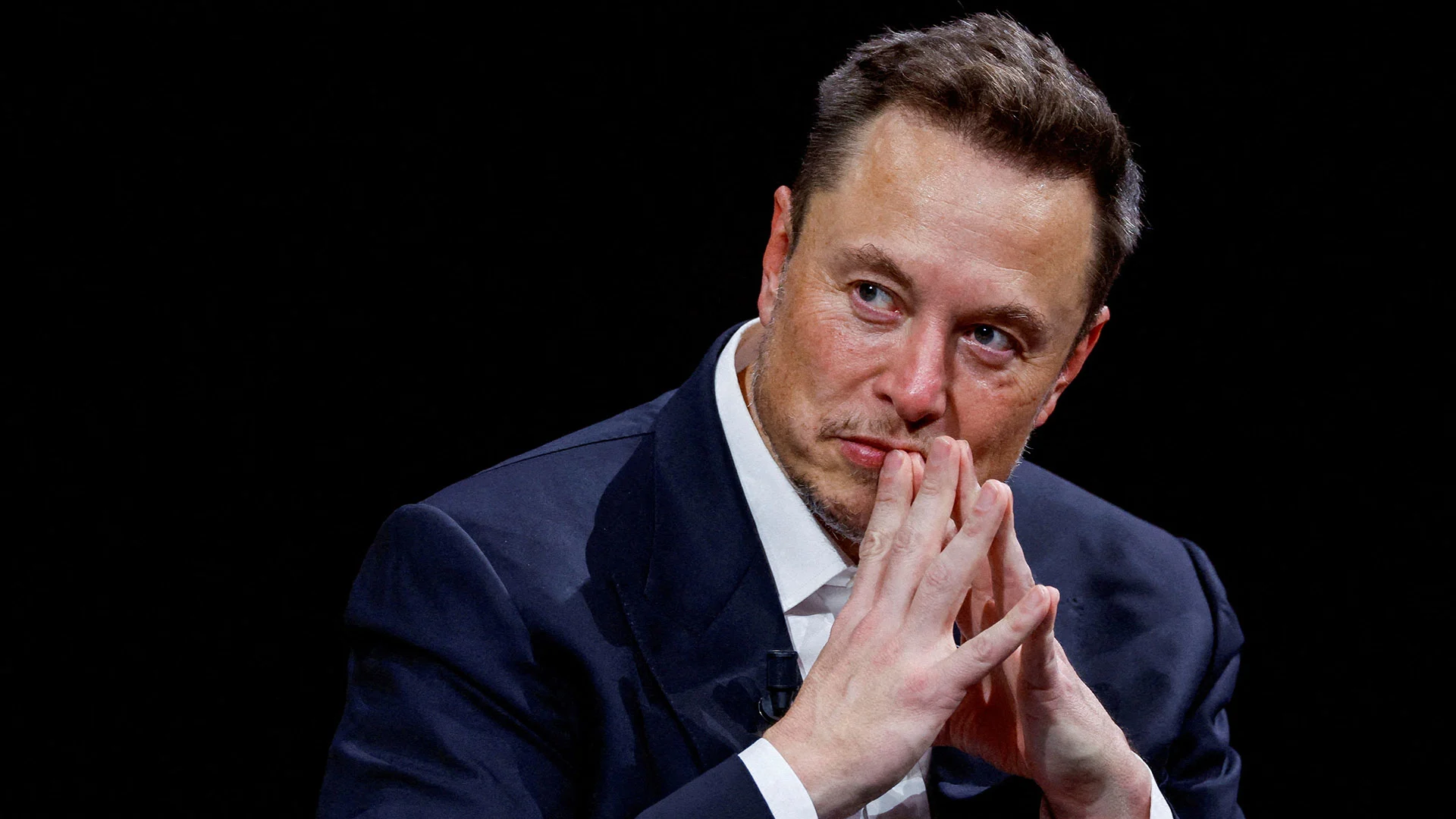Copyright The Hollywood Reporter

Beware! When you enter the animated, dystopian world of Spanish comics and animation creator Alberto Vázquez’s Decorado, you may shed some tears – tears of laughter, sadness, frustration, or all of the above. The new feature from the director, who has won best animated feature film Goya Awards for his Birdboy: The Forgotten Children and Unicorn Wars, world premiered at Austin’s Fantastic Fest. After traveling to Ottawa, Sitges, and the BFI London Film Festival, it is next featured in the Just Anime section of the 29th edition of the Tallinn Black Nights Film Festival (PÖFF), which opens on Friday. The fest runs Nov. 7-23, with the film first screening on Nov. 9. “Arnold, a middle-aged mouse in existential crisis, lives in constant suspicion: unlike his wife María, he has long felt that the world is unreal, a fake, like a film set,” reads a synopsis on the Tallinn website. “Arnold decides to rebel against society,” confronting friends, neighbors, and an almighty corporation ruling his world, known as ALMA (Almighty Limitless Megacorporative Agency). Vázquez co-wrote Decorado, from producer Abano Producions, with F. Xavier Manuel. The voice cast features Chelo Díaz, Damián Cortés, Gaspar González Somoza, and Luís Iglesia Besteiro. THR caught up with Vázquez to discuss the real-world, Hollywood and other creative inspirations for Decorado, the world as a stage, and why he likes to unsettle the audience. I watched Decorado and wondered about the cinematic and literary influences and references I sensed, including Disney, Brave New World, and perhaps also The Truman Show. Could you highlight the key references and why they were important to your life and this story? Decorado has several influences. On one hand, there are the classic animated cartoons – Looney Tunes, Fritz the Cat, Mickey Mouse – and also some more visual references, such as Mary Blair’s work in classic Disney. I’m interested in that tradition of animation that appears innocent and charming on the surface but has something strange and even unsettling underneath. On the other hand, there is a clear influence from dystopian works. 1984 by Orwell, Fahrenheit 451, Brave New World by Aldous Huxley, or the British series The Prisoner from the 1970s. Also, The Truman Show. That whole subgenre of science fiction that deals with constructed realities, surveilled societies, and the idea that the world can be a stage is something that interests me a lot. To all of this, I add an absurd, slightly dark humor that relates to filmmakers like Buñuel. The Phantom of Liberty or The Exterminating Angel are very important films to me for the way they speak about the absurdity of existence. Even Scenes from a Marriage, by Ingmar Bergman, although very different, influenced me in the more intimate and emotional part of the story. I take all of that, put it in a box, shake it… and Decorado comes out. Why do you like to tell your stories in the form of fables? Fables and fairy tales allow me to speak metaphorically about society. Anthropomorphic animals are universal; they are present at the origins of animation and comics, and they don’t belong to a specific place or time. That means the story doesn’t have a fixed national identity — you don’t know if it is Spanish, French, American, or Japanese. And that interests me, because it opens the interpretation and allows anyone to project themselves into it. Why were you interested in exploring the meaning of life and the world as a film set or stage for our performances? This question of what is real and what is fake seems key again today in the age of social media and fake news. This film is a reflection, a mirror, of our current society. I think we are experiencing a huge paradigm shift: hyperconnectivity, social media, superficial relationships, wars, megalomaniac leaders… It’s a society in constant change and, with artificial intelligence, I would even say we are reaching a kind of end of reality. I wanted to talk about these societal crises and how they affect individuals. Many people feel as though they are living on a stage, where everything is a performance. We have all felt like Arnold at some point in our lives.



